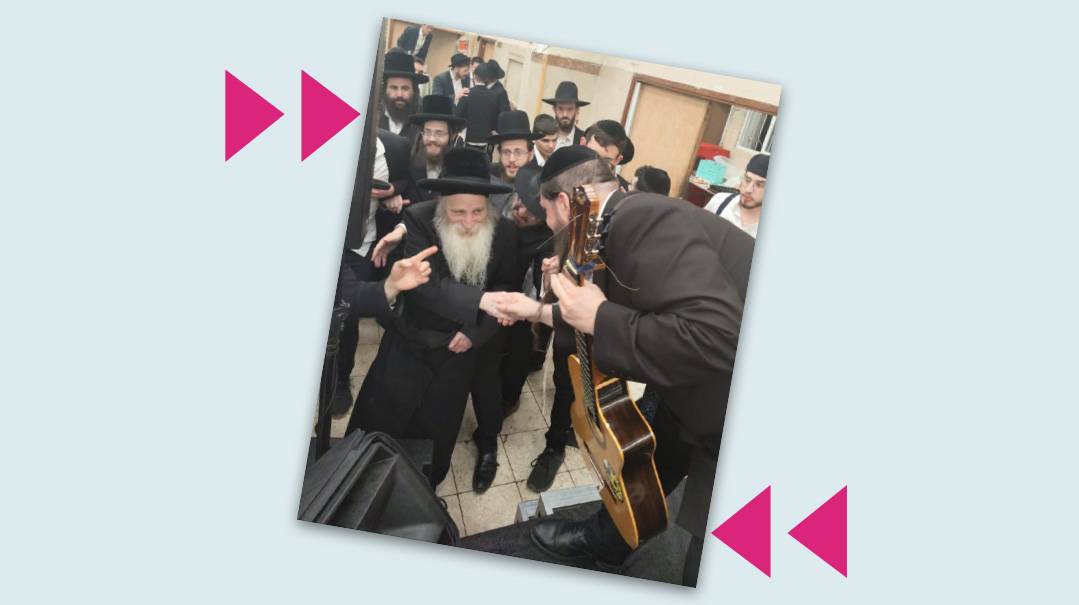Some Things Never Get Old
| January 16, 2024One genre of music that will always be with us is the body of cantorial music — chazzanus

During these days of war and terror in Eretz Yisrael, what songs are you turning to for chizuk?
The traditional Holocaust "Ani Maamin" composed by Azriel Duvid Fastag on the train to Treblinka, that eventually reached the Modzhitzer Rebbe in America. I find many of the traditional songs, with their sincerity coupled with a certain simplicity, take me to a place of warmth and closeness. “Im kol zeh achakeh lo” — Even though Mashiach is so overdue, I still believe he is coming and wait for him every day.
—LEVY FALKOWITZ
Songs That Give Me Chizuk
When I was working on my last Yiddish Nachas album with Yossi Green, we had major issues with the duplication, and I was getting very upset. “Calm down,” Yossi told me. “I’ve tried many times to have things my own way, but whenever I tried, He showed me that He is going to have it His way.”
I have found that to be so true. If I have a challenging day that doesn’t go my way, I’ve been turning to Hershel Rosenberg’s song “Ich Gleib,” on his last album, Tischadesh. I know Hershel well, and this composition is full of humility and trust. I find a lot of chizuk in it.
—MOSHY KRAUS
Some Things Never Get Old
There is the old and the new, and then there is the old which will always be there alongside the new. One genre of music that will always be with us is the body of cantorial music — chazzanus — which so many still flock to hear, whether in shul or at concerts.
Chazzan NISSIM SAAL is a relative newcomer to the world of chazzanus, but his contribution promises excitement and freshness for fans of the genre. Saal’s heartrending davening can be heard regularly at the Yeshurun Synagogue in Jerusalem, where he serves as the chief chazzan, but he sings internationally on major concert stages as well; he was honored with reciting Keil Malei Rachamim at the International Holocaust Remembrance Day at the United Nations Building in January 2023.
Saal has an extraordinary vocal range of over four octaves, and a sweet, clear voice. Combined with the artistic touch of producer Yochi Briskman on Saal’s recently-released CHAZUNES COLLECTION, that voice seems to soar along with the elevated meaning of the words. “Omar Reb Elazar” is here for the Yossele Rosenblatt fans, Aizenstadt’s “Uvedivrei Kodshecha” strikes a majestic note, Koussevitzky’s “Aneinu” is an especially moving piece, and the well-known Rosenblatt melody for the words of Tefillas Tal on Shemini Atzeres is another shul highlight. Saal is accompanied by the S.F.Y. Philharmonic Orchestra and Choir in some of these songs, and “Hatei” and “Uvedivrei Kodshecha” are live recordings with choir and the Raanana Symphonette Orchestra at the Heichal Hatarbut in Tel Aviv.
What Are You Playing Tonight?
My own pick out of the current dance songs is “Lechai Olamim.” It’s got universal appeal. It works for anyone and everyone (from chassidish to Modern Orthodox weddings), has an easy rhythm, and also lots of excitement, which does exactly what it is supposed to do. When you play it, you feel the room moving. I also like to slip in Dedi’s “Yehi Hachodesh Hazeh,” especially if it’s anywhere near Rosh Chodesh.
—Mendy Hershkowitz
UNLIKELY INSPIRATION
“A fellow I don’t even know contacted me to share his story about my song ‘Nu Nu’ and how it impacted him,” says URI DAVIDI. “He was in the hospital with his wife who was giving birth, but there were complications, and she was having a really hard time. There was music playing, and ‘Nu Nu,’ with its chorus of ‘Nu,nu, gam zu letovah, nu, nu, hakol milemalah [this, too, is for the best, everything is from Above]’ was on repeat, calming them and giving them hope and chizuk. At the end of a very long night, their daughter was born, and they ended up naming her Tovah, after the song.”
Mic Drop
A Song for Each Other
The 7,000 children who are joined together on their nightly Tehillim Army Zoom meeting last Thursday were treated to more than a special guest appearance from composer YITZY WALDNER. Yitzy decided to challenge himself to write a song for the children on the spot, with the children themselves collaborating on offering phrases for the lyrics. The group, organized by Morah Tziri Preis of the InKredible Kids podcast, has been getting together every night to say Tehillim for Yidden in Eretz Yisrael since the war began. Every night features a guest speaker or singer to inspire the children, and guests including Yaakov Shwekey, Moshe Tischler, Avraham Fried, and Uncle Moishy have provided musical uplift.
Yitzy was aware that he had his biggest ever Zoom audience and wanted to do something special for them. Although the platform allows a maximum of 1,000 computers, the screens average between three and seven children on each, in addition to hundreds of other screens joining on the Tehillim Army website. Siblings, neighbors, and friends join together to hear the program and say Tehillim in unison.
“After singing some classics together with the children, I asked the kids to unmute themselves to give me some lines, and I wrote down their ideas. Live in my studio, I then wrote a song incorporating those fragments, and played it. For the Hebrew words, we used the pasuk printed on ArtScroll’s InKredible Kids Tehillim Army Sefer Tehillim, from the eighth perek of Tehillim: “Mipi olelim veyonkim yisad’ta oz.” It was a unique experience, something cool we created and sang together. Who knows, maybe the song will make it out there one day,” Yitzy says.
(Originally featured in Mishpacha, Issue 995)
Oops! We could not locate your form.






